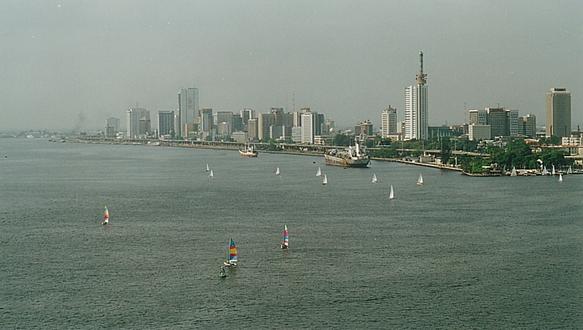As Africa’s tech startups and their founders go about creating disrupting industries or, in some cases, building new ones, they’ve typically tended to mushroom across three major ecosystems: Nairobi, Cape Town and Lagos.
But over the past year, Lagos’ claim as the continent’s startup epicenter has gained currency. For starters, it’s the continent’s most valuable ecosystem with its startups typically raising far more in early-stage funding. It’s also home to e-commerce heavyweights such as Jumia and Konga and has birthed some of the continent’s best known startups including Andela, iROKO and Flutterwave which have all attracted major global investor interest. Hence, it’s not surprising the world’s biggest tech companies have been paying some attention and, now, they’re backing that up with action.
Lagos, being Africa’s largest city and the commercial center of Africa’s largest economy, has seen its ecosystem grow rapidly time largely thanks to work that’s been done to build the its “Yabacon Valley.” That work is paying off: last year, Nigeria attracted more investment than any other startup ecosystem in Africa.
Last week, Facebook said it will open a tech hub in Lagos—it’s first in Africa—”early next year.” The hub is in collaboration with Co-Creation Hub, one of Nigeria’s most prominent startup hubs, and will have incubation programs for startups and developers. The social network giant will also run training programs for 50,000 Nigerians as part of a digital skills training program. Facebook’s decision to deepen its operations in Nigeria comes a little over a year after Mark Zuckerberg, its CEO, chose Lagos for his first visit to Africa.
But it follows on the heels of a similar move by Google. In July, while on his first visit to Lagos, Sundar Pichai, CEO of Google, announced the company’s plans to open its first Google Launchpad Space outside the United States in Lagos. Earlier this month, it hosted the first ever Google Developers Launchpad Start, a one week long boot-camp, for early stage startups in Lagos.
Facebook and Google are likely drawn by aligning factors that could boost their business in Africa’s largest economy: increased smartphone adoption and falling internet costs. But crucially, the potential size of the market can simply not be ignored. Nigeria remains Facebook’s biggest market in Africa and Google’s Maps service user numbers in Nigeria have doubled in the past year.
For Meltwater Entrepreneurial School of Technology (MEST), an entrepreneur training program with roots in Ghana, the market size in Nigeria has also proven a major draw as it opened its first incubator in Lagos on Nov. 21. MEST has invested more than $20 million in African entrepreneurs so far. Last year, it kicked off plans to build a pan-African presence and Lagos, “the largest market by far,” was the obvious choice says Aaron Fu, managing director, MEST.
The incubator plans to host 12 companies its first year in Lagos. Fu says the the “quality” of Nigerian entrepreneurs that have previously participated in MEST’s Accra program has been a pointer to the possibilities in Lagos.
That’s a view shared by Bertil van Vugt, business development lead for VC4Africa, a platform that connects entrepreneurs with resources and funding. “What has changed over the last two or three years is that from the quantity we saw in the beginning, we’re now really starting to see the quality [of Nigerian start-ups],” van Vugt said at the MEST Lagos launch. “I spent some time in Nairobi a couple years back when it was really the start-up capital of Africa but we’ve seen this start-up capital status shift to Lagos.”
Much of Kenya’s reputation as the leading startup ecosystem in Africa has been down to its pioneering use of mobile money technology, particularly through the Safaricom-owned M-Pesa, and its impact on ordinary Kenyans and the local economy. It’s also become well-known for a concentration of social enterprise start-ups that have received attention—and millions of investment dollars—globally. One of such is M-Kopa, a startup that helps customers in East Africa stay connected to electricity using low cost pay-as-you-use solar systems.

